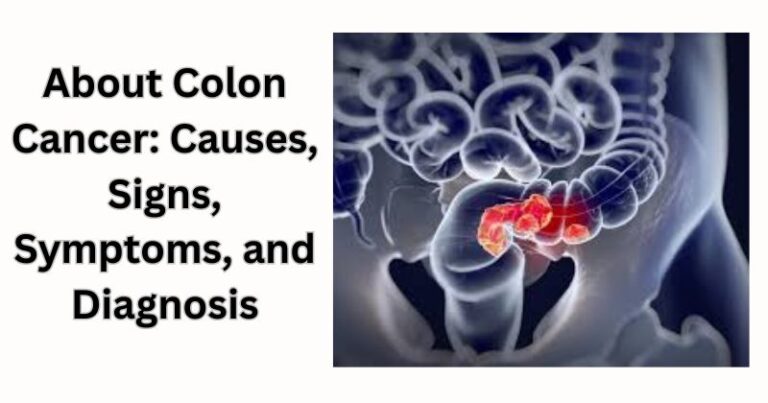Heart blockage, a condition that occurs when fatty deposits and plaque build up in the coronary arteries, is a serious concern. It reduces blood flow to the heart and can lead to significant health problems, such as chest pain, heart attacks, and stroke. While surgical procedures like angioplasty or bypass surgery are often used to treat severe cases, there are effective, natural methods to help manage heart blockage and even reduce plaque buildup at home. With a proactive approach, you can promote better heart health and lower your risk of further complications.
In this article, we will explore natural methods to treat heart blockage at home, highlighting lifestyle changes and simple remedies to support heart health. We will also cover how to recognize the signs of heart blockage and the symptoms of heart blockage, which are crucial for early detection and intervention.
Understanding Heart Blockage and the Importance of Early Detection
Heart blockage, also known as atherosclerosis, occurs when plaque, made up of cholesterol, fatty substances, and other cellular debris, accumulates inside the arteries. This buildup restricts the flow of blood to the heart, which can result in various complications. The symptoms of heart blockage can vary, and some individuals may not notice any warning signs until the blockage becomes severe.
Common signs of heart blockage include:
- Chest pain (angina): A feeling of tightness or pressure in the chest, often triggered by physical exertion or stress.
- Shortness of breath: Difficulty breathing during physical activity or at rest.
- Fatigue: Feeling unusually tired or weak due to the heart’s inability to pump oxygenated blood effectively.
- Dizziness or fainting: Reduced blood flow to the brain can cause lightheadedness or fainting spells.
- Swelling in the legs and feet: Fluid retention in the lower extremities due to poor circulation.
If you experience any of these symptoms of heart blockage, it’s essential to consult a healthcare professional to get an accurate diagnosis and discuss appropriate treatment options. Early intervention can significantly reduce the risk of more severe heart issues.
Natural Methods to Treat Heart Blockage at Home
While surgery may be necessary in some cases, there are several natural approaches that can help treat heart blockage at home, prevent further plaque buildup, and improve overall cardiovascular health.
1. Follow a Heart-Healthy Diet
A nutritious, well-balanced diet is one of the most effective ways to reduce heart blockage. By focusing on whole, nutrient-dense foods and minimizing harmful substances, you can lower cholesterol, reduce plaque buildup, and improve blood flow to the heart. Here are some dietary tips to consider:
- Eat more fruits and vegetables: These foods are high in antioxidants, fiber, and essential vitamins, which help lower cholesterol and reduce inflammation in the arteries. Aim for a variety of colorful fruits and vegetables every day.
- Include healthy fats: Omega-3 fatty acids found in fatty fish like salmon, sardines, and mackerel, as well as in flaxseeds and walnuts, can help reduce bad cholesterol (LDL) levels and promote heart health.
- Reduce saturated and trans fats: Cut down on processed foods, fried foods, and red meats, as these contribute to plaque formation and can increase the risk of heart blockage.
- Consume whole grains: Foods like oats, quinoa, and brown rice are rich in fiber, which helps regulate cholesterol and reduce the buildup of fatty deposits in the arteries.
- Limit sodium intake: Too much salt can elevate blood pressure, which puts additional strain on the heart. Opt for low-sodium options and avoid highly processed foods.
2. Exercise Regularly
Regular physical activity is crucial for treating heart blockage and preventing further cardiovascular issues. Exercise strengthens the heart, improves circulation, lowers cholesterol, and helps manage blood pressure. Incorporating aerobic exercises, such as walking, jogging, cycling, or swimming, can significantly benefit your heart.
- Tip: Aim for at least 30 minutes of moderate exercise most days of the week. If you’re new to exercise, start with shorter sessions and gradually increase your duration and intensity.
3. Quit Smoking
Smoking is a major risk factor for heart blockage. It damages the blood vessels, increases cholesterol levels, raises blood pressure, and accelerates plaque buildup in the arteries. Quitting smoking is one of the most important steps you can take to improve your heart health and reduce your risk of further heart blockage.
- Tip: If you smoke, seek support from a healthcare provider or a smoking cessation program. Quitting smoking can significantly reduce the progression of heart blockage and improve circulation.
4. Manage Stress Effectively
Chronic stress is another contributor to heart blockage. It can increase blood pressure, trigger inflammation, and promote unhealthy behaviors like overeating or smoking. Managing stress is essential for maintaining heart health and preventing further damage to the arteries. Here are some effective ways to manage stress:
- Meditation: Practicing mindfulness or guided meditation can help calm the mind and reduce the physiological effects of stress.
- Yoga and deep breathing exercises: These techniques promote relaxation, lower blood pressure, and improve circulation.
- Relaxation activities: Engaging in hobbies, spending time with loved ones, and taking time to relax can help reduce the impact of stress on the body.
5. Incorporate Natural Supplements
Several natural supplements have been shown to support heart health, reduce inflammation, and improve circulation. Here are a few popular options that may help clear blocked arteries:
- Garlic: Garlic has been shown to lower cholesterol, reduce blood pressure, and prevent the buildup of plaque in the arteries. Consider adding fresh garlic to your diet or taking garlic supplements after consulting your healthcare provider.
- Turmeric: The active compound curcumin in turmeric has potent anti-inflammatory properties that can help reduce arterial inflammation and promote healthy blood flow. You can add turmeric to your diet or take curcumin supplements.
- Omega-3 fatty acids: Fish oil or flaxseed oil supplements are rich in omega-3 fatty acids, which help lower triglycerides, reduce inflammation, and improve heart health.
- Cayenne pepper: Cayenne pepper contains capsaicin, which has been shown to promote circulation and improve heart function. You can add cayenne pepper to your meals or take it as a supplement.
- Tip: Before starting any new supplements, consult with your healthcare provider to ensure they are safe and appropriate for your individual health needs.
6. Maintain a Healthy Weight
Carrying excess weight puts additional strain on the heart and increases the risk of heart blockage. Being overweight or obese can raise cholesterol levels, contribute to high blood pressure, and lead to poor circulation. Maintaining a healthy weight through diet and regular exercise can help reduce your risk of heart blockage and improve overall cardiovascular health.
- Tip: Focus on gradual weight loss by adopting a balanced diet and increasing your physical activity. Even a small amount of weight loss can make a significant difference in heart health.
7. Get Enough Sleep
Sleep is essential for heart health. Poor sleep can contribute to high blood pressure, inflammation, and an increased risk of heart blockage. Aim for 7-9 hours of quality sleep each night to allow your body to rest and repair.
- Tip: Create a relaxing bedtime routine, avoid caffeine late in the day, and limit screen time before sleep to improve your sleep quality.
Conclusion
Heart blockage is a serious condition, but with the right lifestyle changes and natural treatments, you can significantly reduce plaque buildup, improve circulation, and protect your heart. By adopting a heart-healthy diet, exercising regularly, managing stress, quitting smoking, and incorporating natural supplements, you can support your cardiovascular health and reduce the risk of severe heart problems.
It is essential to recognize the Signs of heart blockage and the symptoms of heart blockage early on. If you experience chest pain, shortness of breath, fatigue, dizziness, or swelling, consult a healthcare provider for an evaluation. By taking proactive steps and addressing heart blockage early, you can maintain a healthy heart and avoid the need for invasive procedures.
Remember, always consult with a healthcare professional before making significant lifestyle changes or trying new remedies to ensure they are safe and suitable for your specific health condition. With the right approach, you can successfully treat and prevent heart blockage at home using natural methods.
for more(click here)













